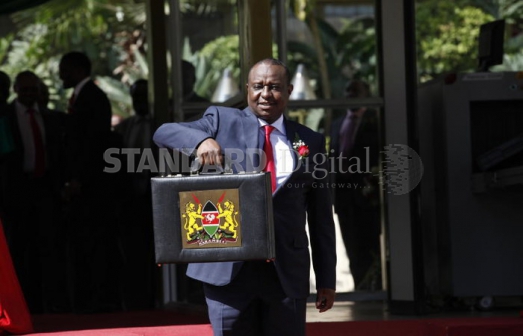×
The Standard e-Paper
Stay Informed, Even Offline

The National Treasury Cabinet Secretary Henry Rotichwants to have sweeping powers to decide the people to sit in two key bodies that make final decisions on multi-billion shilling government procurement.
But, the technocrats in Parliament have told him: You can’t do that! In a digest to MPs explaining the Finance Bill, 2017, the Parliamentary Budget Office (PBO) – the team of economists, fiscal analysts and tax experts who advise MPs on the budget and the economy — have asked the MPs to “delete” Rotich’s proposal.